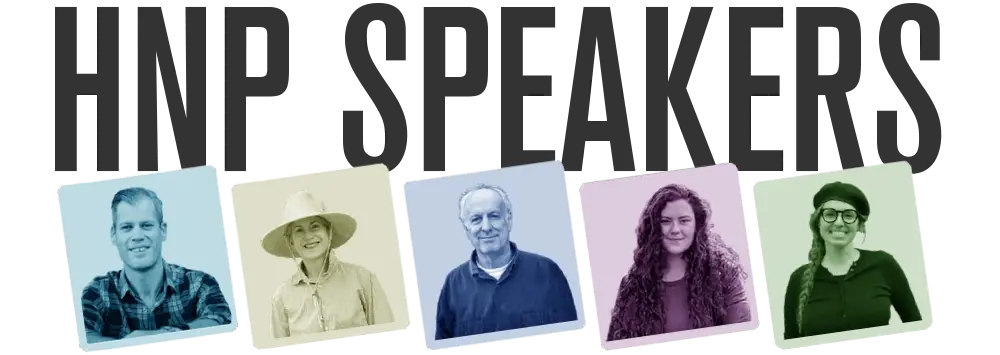
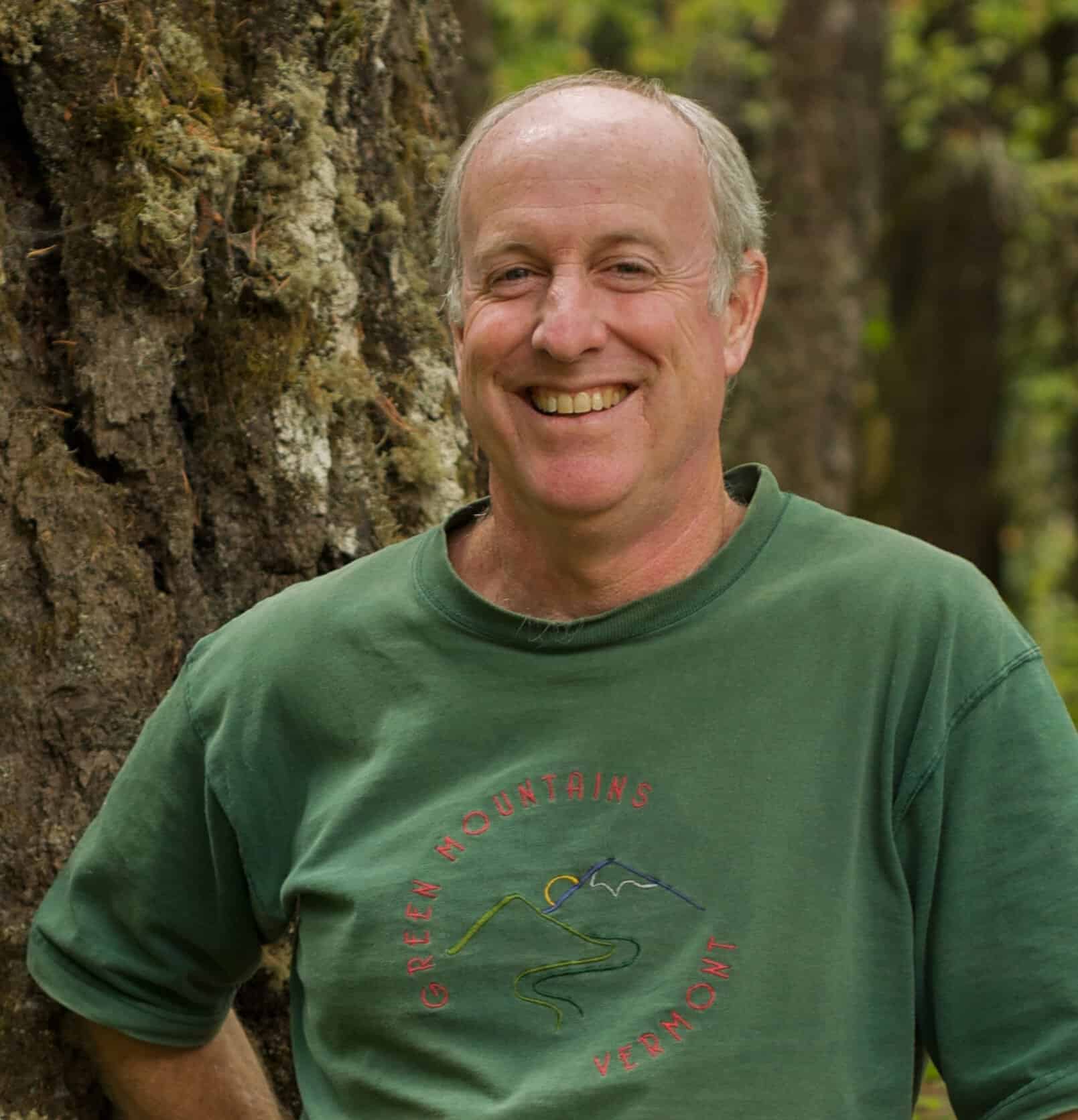
Dr. Doug Tallamy
HNP Co-Founder & NYT Best Seller
Virtual Webinar: 6 Months in Advance, Limited Availability
In Person: 9-12 Months in Advance, Speaker Fee + Travel Expenses
Doug is a renowned entomologist, ecologist, and speaker who has given thousands of talks on the vital role native plants play in sustaining wildlife. As the T.A. Baker Professor of Agriculture at the University of Delaware, he has spent over 40 years studying how insects and plants shape healthy ecosystems. His bestselling books, including Nature’s Best Hope and The Nature of Oaks, have inspired a movement to restore biodiversity at home. Recognized by Audubon, The National Wildlife Federation, and The Garden Club of America, Tallamy is a leading voice in conservation.
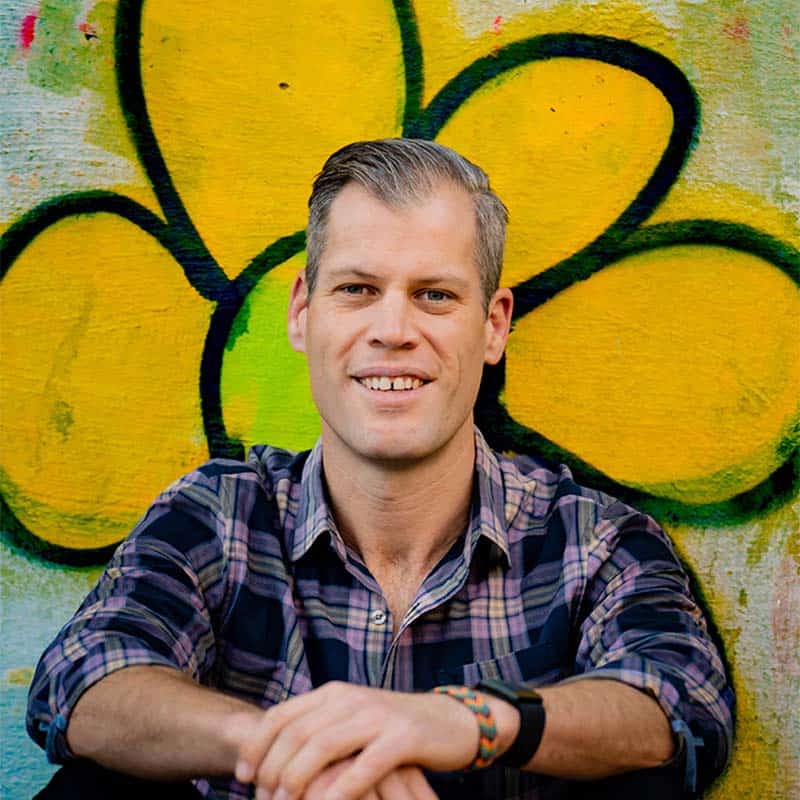
Basil Camu
Author & ISA Board Certified Master Arborist
Virtual Webinar: 2+ Weeks in Advance, Speaker Fee
In Person: Limited Availability, 2+ Months in Advance for Speaker Fee
When you ask Basil what he thinks about himself, he'll tell you he is incredibly lucky. He has family he loves dearly, friends and colleagues who inspire him, and every day he gets to care for trees, soil, and flowers. He pursues his purpose and passions as the co-founder of Leaf & Limb, a tree care company in Raleigh, NC, and Project Pando, a non-profit that aims to connect people to trees. He is a Treecologist, ISA Board Certified Master Arborist, Duke graduate, Wizard of Things, and author of of the book From Wasteland to Wonder - Easy Ways We Can Help Heal Earth in the Sub/Urban Landscape. His work has been featured in the New York Times, Seattle Times, Forbes, Gardenista, The Joe Gardener Show, and a number of other publications and podcasts.
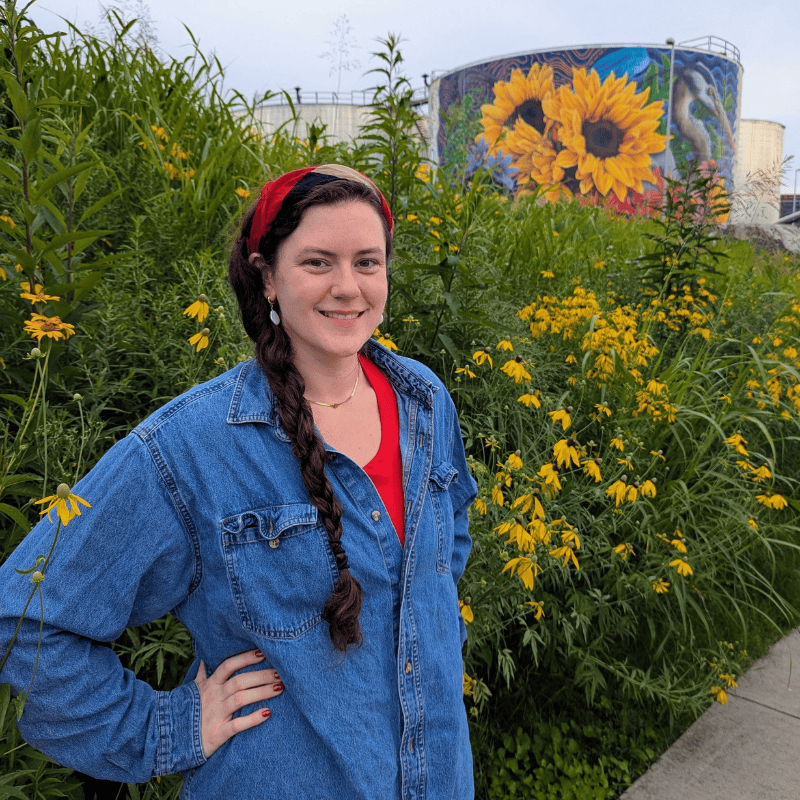
Krista De Cooke MS, MBA
HNP Strategic Partnership & Science Lead
Virtual Webinar: 2 weeks in advance, Suggested honorarium donation to HNP ($250)
In Person: Limited Availability in SE USA, Speaker Fee + Expenses
Krista combines her expertise in ecology and business to drive ecosystem regeneration and biodiversity conservation. She works with diverse partners to promote the planting of native species on private lands, expanding the Homegrown National Park movement and empowering communities to take action for biodiversity.
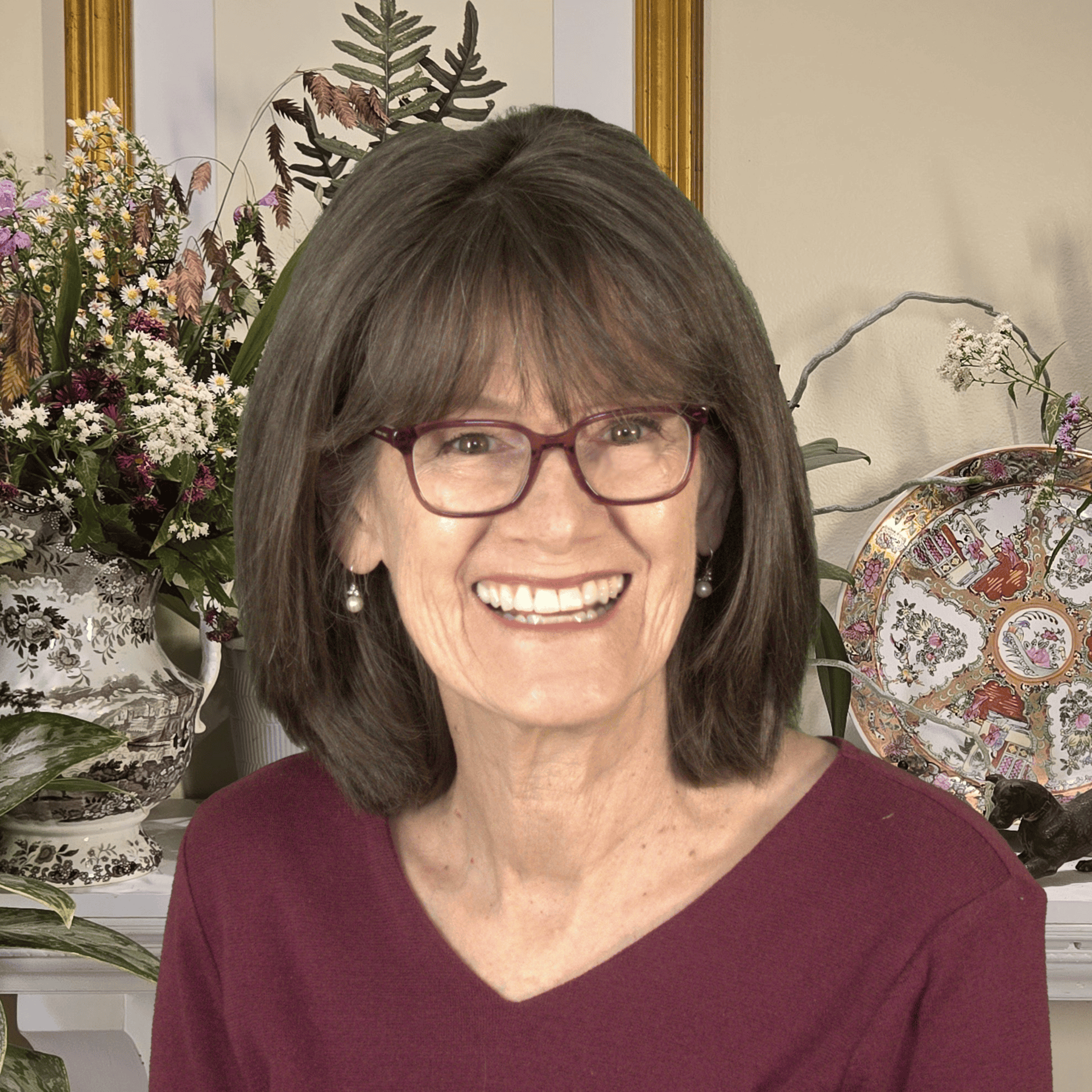
Sarah F. Jayne
Author & Wildlife Advocate
Virtual Webinar: 2 Weeks in Advance (most topics, pending availability), Speaker Fee
In Person: 2 Weeks in Advance (most topics, pending availability), Speaker Fee + Expenses
Sarah is an environmentalist, educator, and lifelong gardener who has worked for over 45 years from California to the East Coast. Her book Nature's Action Guide: How to Support Biodiversity and Your Local Ecosystem is a companion to Doug Tallamy's Nature's Best Hope: A New Approach to Conservation That Starts in Your Yard and features 15 actions we urgently need to take to support biodiversity. Sarah’s work has been featured on The Joe Gardener Show, A Way to Garden, and the WildStory podcasts.
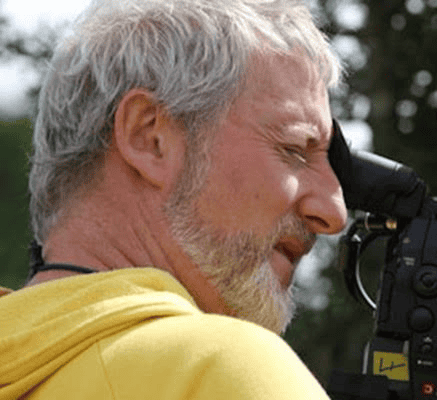
Jeff McKay
Filmmaker - The Extraordinary Caterpillar
Screening Event - Chat with the Director
Virtual Q&A: 3+ Weeks in Advance for Speaker Fee (varies based on audience size, $30-$150)
In Person Q&A: Limited Availability, 2+ Months in Advance for Speaker Fee + Travel Expenses
Jeff McKay has been a filmmaker since 1986. He began at the National Film Board of Canada where he received a Peabody Award for his feature Fat Chance. McKay has gravitated toward stories and subjects that celebrate the spirit of life. He holds a deep fascination with both cultural and natural history and its profound impact on contemporary culture. His 2016 film Call of the Forest – The Forgotten Wisdom of Trees received nominations for the Canadian Screen Awards, the Pariscience Science Film Festival, and voted the World Wildlife Fund finalist at Jackson Wild. More at www.jeffmckay.org
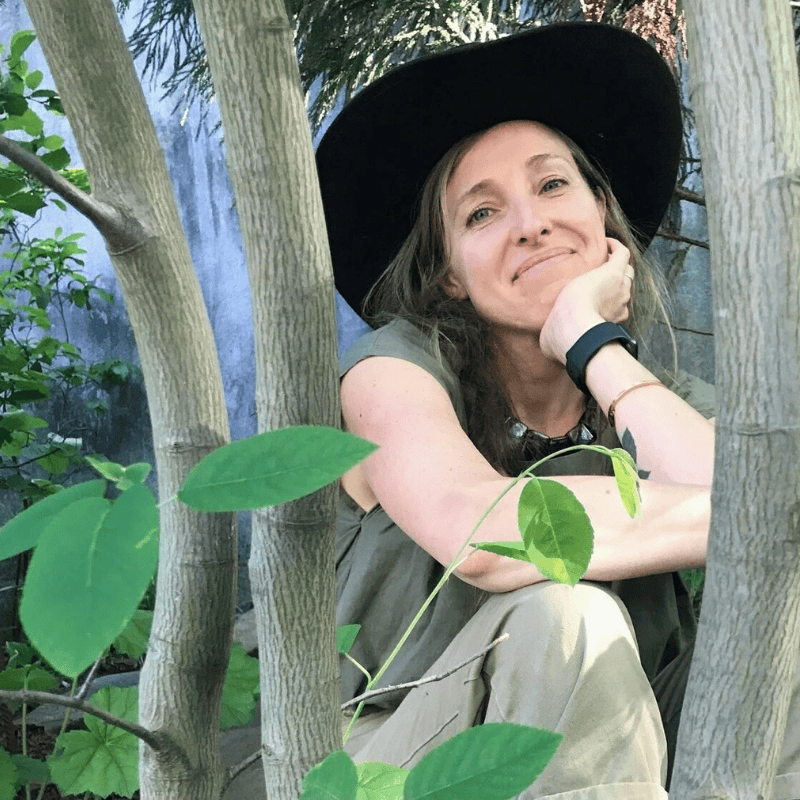
Rebecca McMackin
M.Sc. (Biology), M.Sc. (Landscape Design)
Virtual Webinar: 6+ Months in Advance, Speaker Fee
In Person: 6+ Months in Advance, Speaker Fee + Travel Expenses
Rebecca McMackin is an ecologically obsessed horticulturist, garden designer, and writer. She is currently Lead Horticulturist for the American Horticultural Society and produces the monthly newsletter and podcast, Grow Like Wild! Prior to moving to the woods of New England, Rebecca was Arboretum Curator at Woodlawn Cemetery in the Bronx, a Loeb Fellow at Harvard, and managed Brooklyn Bridge Park for a decade. She has written for and been featured in Gardens Illustrated, the New York Times, NPR, PBS, and her TED talk on ecological gardening has been watched more than a million times.
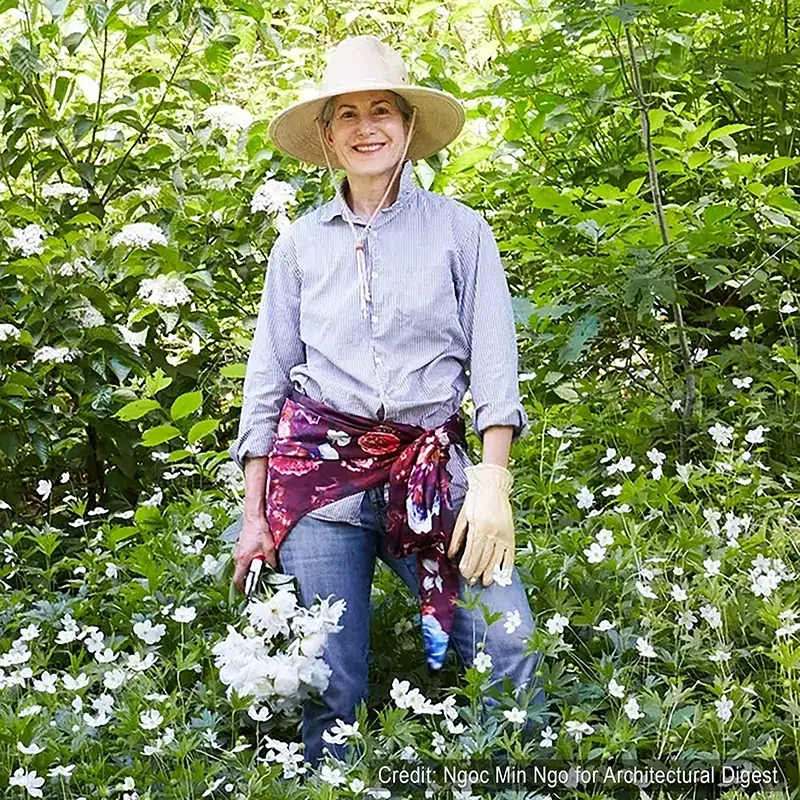
Dee Salomon
HNP Board Member & Invasive Removal Guru
Virtual Webinar: 3 Months in Advance, Suggested honorarium donation to HNP ($200)
In Person: Availability in New England, 3 Months in Advance
Dee's passion for protecting and restoring native habitats began over a dozen years ago, as she began clearing invasives from her property in West Cornwall, CT. She writes a column on the topic for the Lakeville Journal; which also appears on her website, TheUngardener.com. Her advocacy extends to guest lecturing, hosting workshops, and working one on one with people interested in similarly restoring their properties. Dee serves as an HNP Board Member and is a founding member of the Cornwall Garden Club board, where she programs events promoting native planting and invasive removal.
Doug's Topics
Homegrown National Park
Our parks and wildlands are too small and fragmented to support vital native species, putting ecosystems at risk. Homegrown National Park encourages individuals to restore biodiversity by reducing lawns, planting native species, and removing invasives to rebuild ecological networks and protect our planet’s future.
Nature’s Best Hope
With insect populations plummeting and bird numbers declining, our current landscaping choices are failing biodiversity. We can reverse these trends by planting the right species and fostering a more collaborative relationship with nature, as Tallamy shares simple yet powerful steps to restore ecosystems and combat climate change.
Next Steps for Nature: 500 Questions (and Answers) for How to Save Nature in Our Yards
Even after reading books and attending talks, many still have pressing questions about ecological landscaping. In this talk, Tallamy addresses common concerns on biodiversity, invasive species, native plants, and conservation strategies, providing practical guidance and motivation to restore nature in everyday spaces.
A Guide to Restoring the Little Things That Run the World
Insects, essential to ecosystems, are vanishing at alarming rates, yet we rarely acknowledge the crisis. Tallamy highlights the crucial roles insects play and outlines simple changes we must make in our landscapes to preserve pollinators and other keystone species.
A Chickadee’s Guide to Gardening
Traditional landscaping prioritizes aesthetics over ecological function, leaving little room for wildlife. Tallamy explains how native plants, which evolved alongside local species, better support birds, insects, and other animals, demonstrating how “living landscapes” can be both beautiful and vital for biodiversity.
The Nature of Oaks
Oaks are ecological powerhouses, sustaining diverse wildlife throughout the year. Tallamy explores their fascinating seasonal cycles, from woodpeckers storing acorns to jewel caterpillars thriving in their branches, offering practical tips on planting and care to inspire us to appreciate and protect these essential trees.
Are “Alien” Plants “Bad”?
Some argue that non-native plants benefiting certain pollinators or birds should be embraced, but what is the full ecological cost? Tallamy presents research comparing the impact of introduced species versus native ones, showing that the latter support far richer and more stable food webs, making a compelling case for prioritizing native plants.
Basil's Topics
From Wasteland to Wonder reveals how common landscaping practices harm the planet, and how we can heal it. Learn simple yet impactful steps for creating thriving, beautiful sub/urban landscapes; from saving trees to planting pocket forests. This engaging talk includes a Q&A for deeper discussion.
Dee's Topics
Dee shares her journey removing invasives to transform her property into a thriving native habitat. In doing so, she illustrates how she changed the woodland and it changed her. Her inspiring story offers enough practical insights to help others begin their own restoration efforts.
Krista's Topics
Krista speaks on the biodiversity crisis, the importance of native ecosystems, and how individuals can contribute to restoring nature where they live. Her talks inspire audiences to take simple, impactful steps, emphasizing the critical role private landowners play in reversing biodiversity loss.
Rebecca's Topics
Adventures in Ecological Horticulture
Can you imagine a more difficult place to garden than on concrete in Brooklyn? Rebecca shares inspirational and informative lessons from her decade at Brooklyn Bridge Park with an emphasis on techniques for the home landscape.
Biodiversity for the Masses
Ecological Gardening is a massive and growing movement. This lecture looks at where we've come from, where we might go, and how to avoid possible pitfalls of past movement.
Pollination Ecology
Flowers are not just beautiful, they are the result of thousands of years of communication with their pollinators partners, be they birds, bees, butterflies or bats. This lecture teaches you to understand the language of flowers and how best to support these gorgeous dynamics.
Sarah's Topics
Supporting Biodiversity: 15 Critical Actions to Support Your Local Ecosystem
Supporting biodiversity is something that everyone can do! In this fast-paced, practical workshop, we’ll look at 15 urgently needed actions to create healthy, functioning ecosystems. Learn strategies for designing and caring for wildlife-friendly spaces that fit within your neighborhood's standards. Join us to learn how to make short work of these urgently needed actions!
Ecology and Beauty: Creating a Landscape that Welcomes Wildlife and People
How can we ensure that our spaces are both ecologically rich and beautiful? In this fast-paced, practical workshop, we’ll consider strategies to ensure that our wildlife-filled landscapes garner community acceptance. A cost-conscious, DIY approach makes taking action doable. Along with a detailed handout, you’ll come away inspired and empowered to invite more biodiversity into your spaces.
Where Do I Begin?! Getting Started with Ecological Plantings
Are you eager to add ecological plantings to your landscape to support wildlife, but you’re not sure where to begin? You are not alone. In a recent informal survey respondents reported the lack of knowledge as a top obstacle. In this talk, we’ll look at five different step-by-step DIY approaches to getting started with ecological planting along with design tips when just starting out.
Designing Your Wildlife Habitat: A Hands-On Workshop
Develop your vision for a wildlife habitat! In this interactive workshop, we’ll start with your site plan and work through the steps of designing an ecological planting in your landscape that supports wildlife and pleases people. Along with a handout and DIY project how-to’s, you’ll come away with a plan and the know-how to implement it.
Gardening with a “Protection First” Mindset
The place we call home is our shelter—our sanctuary. The wildlife habitats we create are sanctuaries for the insects, birds, and other animals our plants attract. How can we maximize the beneficial impact of plants and ensure that we truly are providing refuge and safety for the wildlife our native plants attract? Let’s explore resources and the urgently needed actions that will help to protect our local biodiversity.
‘Weather’ or Not! How to Fortify Your Ecological Landscape for the Future
Many of the actions we take to create vibrant wildlife habitats that support biodiversity are the same actions that help a landscape to withstand weather events and climate shifts when they occur. Addressing climate change and restoring biodiversity are mutually beneficial actions. In this talk, we’ll look at how we can build resilience into our ecological plantings to help them weather the future.
Expanding the Circle: Helping Others to Get Started Supporting Biodiversity The urgency of the biodiversity crisis requires that everyone takes part in supporting our local ecosystems. An important way to help support the biodiversity movement is to share ecological how-to’s with non-gardeners and future gardeners. We'll look at how to invite others into the biodiversity circle and help them to make short work of 15 urgently needed actions to support biodiversity and abundance.
Support Homegrown National Park
Speaker fees and travel expenses are arranged directly between the speaker and the organizing group (when applicable).
If you’d like to further support Homegrown National Park’s mission after hosting a talk, we welcome an optional honorarium donation. Your gift helps us grow this grassroots movement to regenerate biodiversity across North America.
Use the donation form below to contribute. If you can, please note the speaker name and hosting organization in the provided field when making your donation so our team can track it properly.
